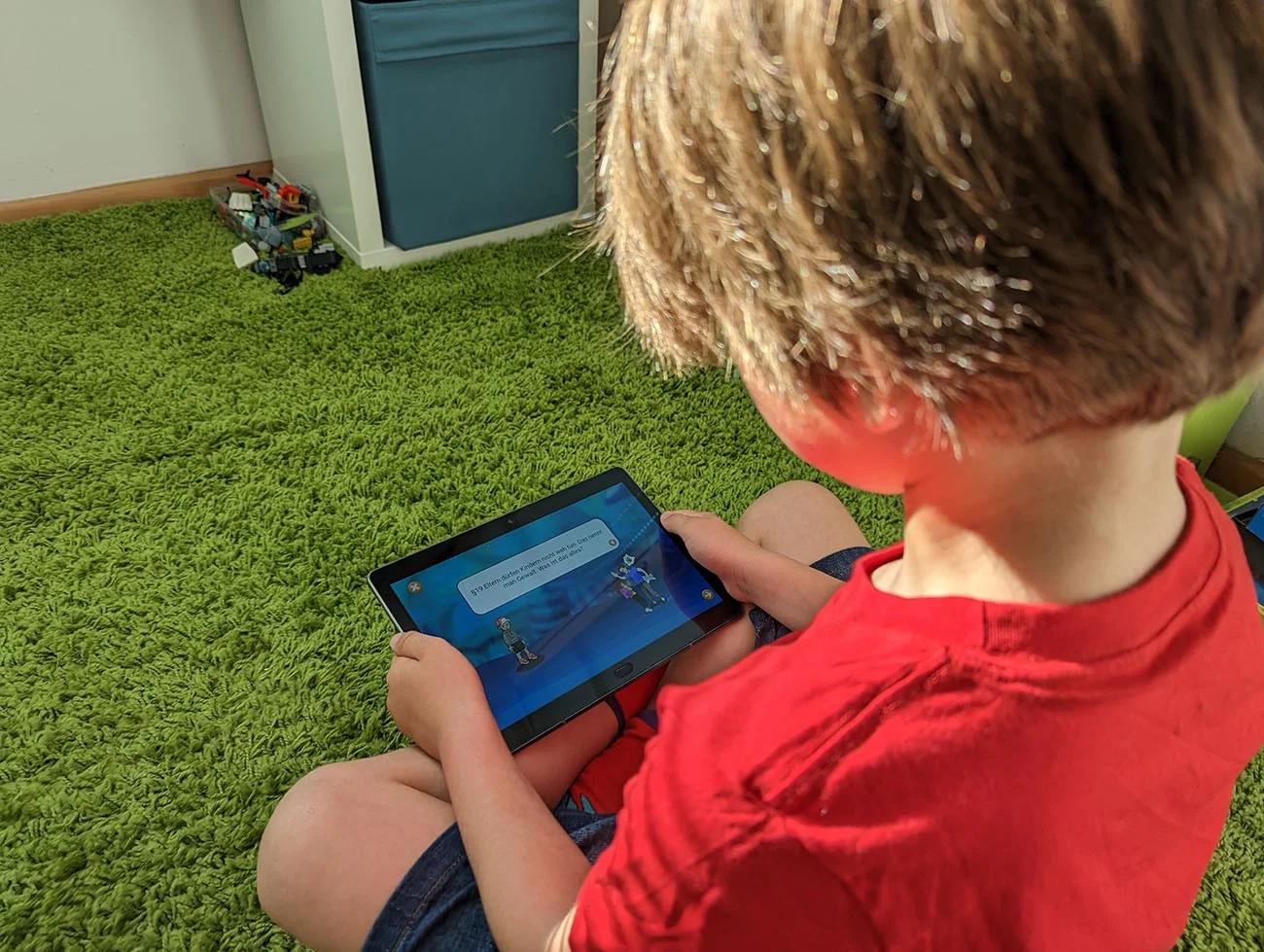Eastern Switzerland University of Applied Sciences (OST), PH Lucerne and UNICEF Switzerland and Liechtenstein have launched a child rights web application developed in cooperation with more than 170 children and a broad network of different children's rights organizations. The web app is now available under kidimo.app in three languages: German, French and Italian. The app is designed to teach children about their rights in a fun manner, based on the United Nations Convention on the Rights of the Child. Children can create their own avatar and explore their rights to protection, support and participation in three thematic realms.
Short hair or long and tousled hair? With or without a cap? Laughing, awestruck, or grim? In the new KIDIMO child rights app, children start by creating their own avatar and giving it a name. With their avatar, the children can then explore the three pillars of child rights according to the UN Convention on the Rights of the Child: the realms of protection, support and participation. Each realm features scenes from everyday life showing specific rights of children. These may involve basic needs, a child’s rights if parents separate or divorce, or opportunities for co-determination. And if children find themselves in emergency situations or need more information, they are referred to existing services that they can make use of.
Each scene includes a fun task to be solved. “By playing games, the children become familiar with rights and possible actions, which they can then think about and discuss with adults,” says Selina Ingold, joint project manager and professor at the Institute for Innovation, Design and Engineering at OST. The interdisciplinary project team has also published supporting literature on how the app can be used in schools, in child social work, and by child protection workers. “The accompanying materials for schools offer teachers specific suggestions on using the app to help children learn about child rights,” adds Thomas Kirchschläger, Human Rights Education Officer at PH Lucerne and a member of the project team.
Designed with children, for children
Children ages 7 to 13 were actively involved in developing KIDIMO from the start. They expressed their wishes and ideas in workshops, were involved in the project and helped shape important decisions as part of a even-member children’s advisory council. They then tested the app in various development stages. The project lasted 30 months and included 18 workshops and meetings with children’s groups. The children consistently emphasized the importance of using games to address the topic. “The children taking part often expressed that they want the app to have surprises, different games and that you can make progress through the app – and also share that progress with your friends,” says Matthias Baldauf, joint project manager and professor at the Institute for Information and Process Management.
The current app is based on the children’s different ideas and requests, and features three rights “realms” where players can score points in age-appropriate mini-games which then open the way to further options. The project team included the findings from the participatory development of a digital application in a practical guide intended to help other organizations and developers design future programs for children with the help of children.
A partner network of specialist organizations
Children weren’t the only ones assisting in the app’s development: over 60 specialists from various professional fields involving children also took part. Four workshops were held to collect information for possible application scenarios and target groups. Specific requirements for the supporting material for use in schools or in extracurricular areas were then formulated. The the app is supported by a partner network of important children's rights organizations: Pro Juventute, Ombuds Office Children’s Rights Switzerland, UNICEF Switzerland and Liechtenstein, Terre des Hommes Suisse, Integras, éducation21, PACH Pflege- und Adoptivkinder Schweiz (Foster and Adoptive Children Switzerland), Procap, and Pro Infirmis. Other organizations provided materials for the app, including Pro Junior and the Swiss Foundation for the Protection of Children (Kinderschutz Schweiz). The project received funding from the Paul Schiller Foundation and the Swiss Federal Social Insurance Office (BSV). “The KIDIMO app is a real community effort by the partners in the project,” says Nicole Hinder, Director Child Rights Advocacy and Executive Board member for UNICEF Switzerland and Liechtenstein. “It brings us a step closer to our goal of all children knowing their rights.”
UN Convention on the Rights of the Child
The UN Convention on the Rights of the Child was developed as an international instrument for human rights and ratified in 1989. It is the first convention that codifies the international recognition and implementation of human rights for children. The rights recorded in the Convention’s 54 articles are indivisible and universally applicable, and represent internationally binding minimum standards on child welfare.
The UN’s goal was to set down the rights of the child in the UN Convention and make these “human rights for children” legally binding in all member states. The Convention has been in force in Switzerland since 1997. To ensure that the best interests of the child are considered in all situations affecting children, the UN Convention on the Rights of the Child from November 20, 1989 identifies the following three pillars:
- recognition and protection
- support and development
- participation and co-determination

